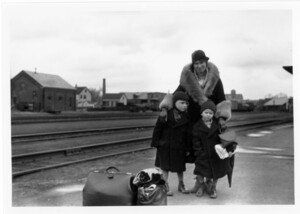The Marine Biological Laboratory in Woods Hole, Massachusetts, began in 1888 as a haven for research and teaching in laboratory biology. The first director, Charles Otis Whitman, had taught biology in Japan and then at Clark University before moving permanently to the University of Chicago. Whitman’s student, Frank Lillie, eventually became assistant director of the MBL and then director, while also carrying out research and contributing to teaching the MBL Embryology course. Together, they created a welcoming community for students and researchers, who returned summer after summer to benefit from the community of scientists and families who made the place so special.
Huettner’s dissertation director was Edmund Beecher Wilson, one of the luminaries at the MBL from the very beginning. By Huettner’s time, Wilson was a senior statesman, walking slowly with crutches even as he returned to the lab to continue his study of cells and worked on the third and final edition of his classic work The Cell in Development and Heredity. Huettner joined Wilson at the MBL in the summers, carrying out his own comparative studies of embryology and documenting his work with excellent drawings.
At the MBL, Huettner contributed to the by-then highly respected Embryology course, both through lectures and through use of his illustrations. He also carried his earlier career with him, photographing scientists such as Ernest Everett Just and others pitching horseshoes, his biology colleagues sailing, canoeing, picnicking, working, thinking, and just about everything else that makes up the life of a great research laboratory and life.
- Donald Lancefield, “Alfred F. Huettner, Scientist and Teacher,” Science. 1955: 122: 953.
- Jo Hall, “Brothers excelled in Photography,” Mobridge Tribune (June 15, 1988) p. 7

